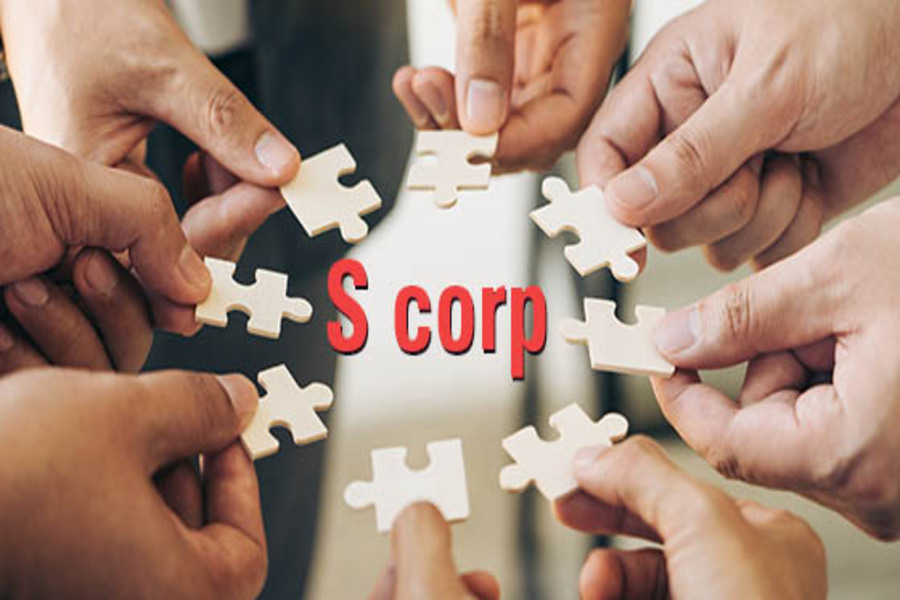Cybercriminals are always looking for novel ways to gain unauthorized access to online accounts and IT networks. Password “spraying” is a newer scheme you and your IT department need to know about and guard against. Traditional cyberattacks attempt to breach a single account with multiple password attempts. But password spraying schemes use common passwords to try to access as many accounts as possible. Unfortunately, this approach can be very effective. How and why it works Password spraying perpetrators buy lists of usernames or email addresses and either buy or invent lists of common passwords. They then attempt to access multiple accounts using a single password. If that password doesn’t work, the criminals select a new password and keep trying until, eventually, a password opens an account. That...

Staying compliant with payroll tax laws is crucial for small businesses. Mistakes can lead to fines, strained employee relationships and even legal consequences. Below are six quick tips to help you stay on track. (1) Maintain organized records Accurate recordkeeping is the backbone of payroll tax compliance. Track the hours worked, wages paid and all taxes withheld. Organizing your documentation makes it easier to verify that you’re withholding and remitting the correct amounts. If you ever face an IRS or state tax inquiry, having clear, detailed records will save time and reduce stress. (2) Understand federal withholding Federal income tax. Employees complete Form W-4 so you can determine how much federal income tax to withhold. The amounts can be calculated using IRS tax tables. . FICA taxes (Social Security and...
Have you ever invested in a company only to see its stock value plummet? (This may become relevant in light of recent market volatility.) While such an investment might be something you’d rather forget, there’s a silver lining: you can claim a capital loss deduction on your tax return. Here are the rules when a stock you own is sold at a loss or is entirely worthless. How capital losses work As capital assets, stocks produce capital gains or losses when they’re sold. Your capital gains and losses for the year must be netted against one another in a specific order based on whether they’re short-term (held one year or less) or long-term (held for more than one year). If, after netting, you have short-term or long-term losses...
Determining the value of a construction company is complex and requires a deep understanding of industry-specific challenges and financial metrics. Whether a construction business owner is planning a sale or merger, securing financing, preparing for succession, or navigating legal matters, an accurate valuation is essential. Professional valuation experts analyze a range of factors unique to construction businesses — including homebuilders, commercial real estate developers, subcontractors and specialized tradespeople — to provide reliable assessments of value. Unique risks The construction industry is inherently cyclical, making economic fluctuations a significant risk. Market downturns can lead to project delays or cancellations, affecting cash flow and profitability. Weather conditions and natural disasters further contribute to the industry’s unpredictability, as they can disrupt project timelines and escalate costs. Another major risk factor is...
When it’s time to consider your business’s future, succession planning can protect your legacy and successfully set up the next generation of leaders or owners. Whether you’re ready to retire, you wish to step back your involvement or you want a solid contingency plan should you unexpectedly be unable to run the business, exploring different succession strategies is key. Here are five options to consider, along with some of the tax implications. 1. Transfer directly to family with a sale or gifts One of the most common approaches to succession is transferring ownership to a family member (or members). This can be done by gifting interests, selling interests or a combination. Parents often pass the business to children, but family succession plans can also involve siblings or...
There are some nice tax breaks for transportation-related employee fringe benefits. If your employer offers these tax-favored fringes, you should probably take advantage of them by signing up. Here’s a quick summary of the current federal tax treatment of transportation-related benefits. Mass transit passes For 2025, employer-provided mass transit passes for train, subway and bus systems are tax-free to a recipient employee up to a monthly limit of $325. Thanks to an unfavorable change in the 2017 Tax Cuts and Jobs Act (TCJA), your company can’t deduct the cost of this benefit. However, your company may offer a salary-reduction arrangement that allows you to set aside up to $325 per month from your salary to pay for transit passes with your own money. That way, you pay...
Statistics on fraud rates in family-run businesses are scant. This is probably because most family enterprises keep incidents of financial malfeasance under wraps and don’t involve law enforcement or the courts. Because punishing offenders is critical to preventing future fraud, such secrecy can encourage schemes and raise the risk of large financial losses. So although your family business may be different from those run by unrelated individuals, it needs just as many internal controls to prevent bad behavior. Antifraud policies are critical Fraud prevention efforts in family businesses often are hampered by loyalty and affection. One of the biggest potential obstacles is failing to acknowledge that someone in the family could be capable of initiating or overlooking illegal activities. If there’s a black sheep in your flock,...
Are you starting a business with partners and deciding on the right entity? An S corporation might be the best choice for your new venture. One benefit of an S corporation One major advantage of an S corporation over a partnership is that shareholders aren’t personally liable for corporate debts. To ensure this protection, it’s crucial to: Adequately finance the corporation, Maintain the corporation as a separate entity, and Follow state-required formalities (for example, by filing articles of incorporation, adopting bylaws, electing a board of directors and holding organizational meetings). . Handling losses If you anticipate early losses, an S corporation is more favorable than a C corporation from a tax perspective. Shareholders in a C corporation generally don’t benefit from such losses. However, as an S corporation shareholder, you can deduct your share of losses on...
If you made significant gifts to your children, grandchildren or other heirs last year, it’s important to determine whether you’re required to file a 2024 gift tax return. And in some cases, even if it’s not required to file one, you may want to do so anyway. Requirements to file The annual gift tax exclusion was $18,000 in 2024 (increased to $19,000 in 2025). Generally, you must file a gift tax return for 2024 if, during the tax year, you made gifts: That exceeded the $18,000-per-recipient gift tax annual exclusion for 2024 (other than to your U.S. citizen spouse), That you wish to split with your spouse to take advantage of your combined $36,000 annual exclusion for 2024, That exceeded the $185,000 annual exclusion in 2024 for...
Business valuation professionals often rely on client-prepared financial projections to calculate lost profits and diminution in value. However, courts may exclude expert testimony that’s based on speculative or unreliable projections. To withstand scrutiny, valuators must support their conclusions with market-based evidence and a rigorous analysis of case-specific facts. The landmark case Endless River Technologies, LLC v. TransUnion, LLC (6th Cir., Dec. 18, 2024) serves as a recent example of how expert testimony may be inadmissible due to flawed financial assumptions. Trial court admits valuation evidence In Endless River Technologies, the U.S. Court of Appeals for the Sixth Circuit addressed a contractual dispute. The case involved ownership of the source code for a proprietary platform that served as an online marketplace for insurance leads. In 2014, the parties entered into...
- 1
- 2
- 3
- 4
- 5
- 6
- 7
- 8
- 9
- 10
- 11
- 12
- 13
- 14
- 15
- 16
- 17
- 18
- 19
- 20
- 21
- 22
- 23
- 24
- 25
- 26
- 27
- 28
- 29
- 30
- 31
- 32
- 33
- 34
- 35
- 36
- 37
- 38
- 39
- 40
- 41
- 42
- 43
- 44
- 45
- 46
- 47
- 48
- 49
- 50
- 51
- 52
- 53
- 54
- 55
- 56
- 57
- 58
- 59
- 60
- 61
- 62
- 63
- 64
- 65
- 66
- 67
- 68
- 69
- 70
- 71
- 72
- 73
- 74
- 75
- 76
- 77
- 78
- 79
- 80
- 81
- 82
- 83
- 84
- 85
- 86
- 87
- 88
- 89
- 90
- 91
- 92
- 93
- 94
- 95
- 96
- 97
- 98
- 99
- 100
- 101
- 102
- 103
- 104
- 105
- 106
- 107
- 108
- 109
- 110
- 111
- 112
- 113
- 114
- 115
- 116
- 117
- 118
- 119
- 120
- 121
- 122
- 123
- 124
- 125
- 126
- 127
- 128
- 129
- 130
- 131
- 132
- 133
- 134
- 135
- 136
- 137
- 138
- 139
- 140
- 141
- 142
- 143
- 144
- 145
- 146
- 147
- 148
- 149
- 150
- 151
- 152
- 153
- 154











